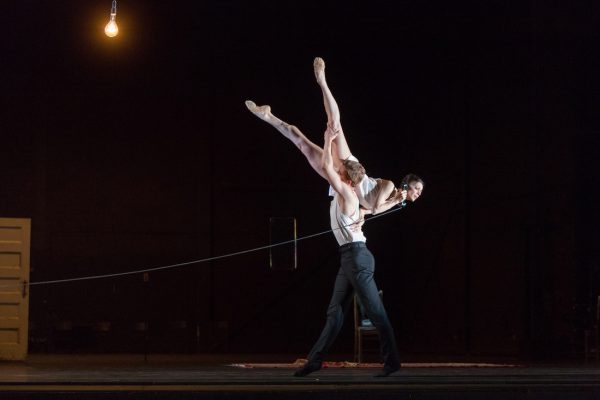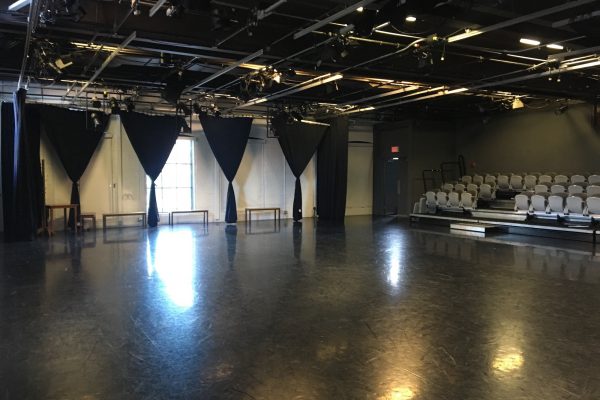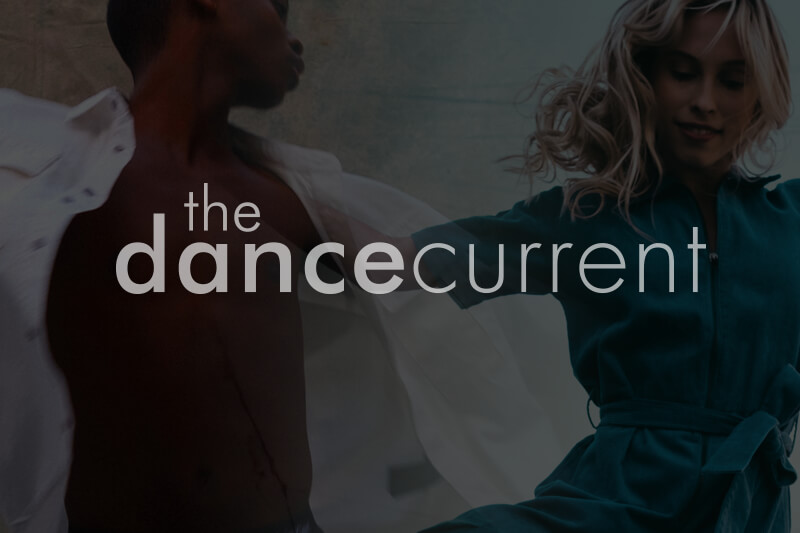Born in Dalian, China, Xiao Nan Yu trained at the Shen Yang School of Dance and the Beijing Dance Academy in China and later Canada’s National Ballet School, before joining the company at The National Ballet of Canada (NBoC) in 1996. In 2001 she was promoted to principal dancer. Since then, Yu has danced principal roles in much of the company’s repertoire, including Swan Lake, Romeo and Juliet, The Sleeping Beauty, The Nutcracker, Giselle, Onegin, The Winter’s Tale, The Merry Widow, Nijinsky and Anna Karenina.
The Dance Current caught up with Yu on the eve of her retirement from her tenure at the NBoC. Yu will be taking her final bow in The Merry Widow, onstage June 19–23 at the Four Seasons Centre for the Performing Arts.
~
Grace Wells-Smith When did you start training at Canada’s National Ballet School?
Xiao Nan Yu I was there from 1995 to 1996. I was only there for a year. I was a grade twelve student. After that, I joined the company.
GWS What was your year at the school like?
XNY It was overwhelming – with the culture shock, and the language and adjusting myself in the new environment.
GWS Did you notice a big difference between the Beijing Dance Academy and Canada’s National Ballet School?
XNY There wasn’t a big difference, but they had a different focus. The schools out in China would focus very much on technique. At [Canada’s] National Ballet School, it was more of performance preparation, getting ready to move on to be professional. It was a lot of stage experience, I will say.
GWS So, after you graduated from grade twelve you joined the company?
XNY Yes. I was an apprentice for seven months and then I joined the corps de ballet.
GWS And what happened after that?
XNY I was promoted to second soloist in 2000, and then in 2001 I was promoted to first soloist. And, I can’t exactly remember, but it was about a year after I was promoted to principal.
GWS What’s a typical work day like?
XNY It’s still the same thing, 10 o’clock ballet class. It’s been like this for as long as I can remember. Our company always does ballet class in the morning, and our rehearsals start at 11:30am. Depending on the repertoire you’re doing for the season, it can run until 6:30 in the evening with an hour lunch break.
GWS How does that feel? Is it exhausting?
XNY You get used to it. You get five minutes break in an hour, and it doesn’t run all the time. You have six hours a day, but sometimes it’s three or four. It depends on the amount of repertoire you’re doing per season.
GWS What’s the biggest difference that you’ve noticed being a principal dancer versus being in the corps?
XNY The finished product of course is a full-length ballet. If you’re chosen to be the principal to do it then the audience knows you more, but you also carry the responsibility for the full-length ballet. If you deliver well, then the ballet can be really well received. The corps de ballet is important to the foundation of the full-length ballet. You can’t just have a good principal and not have a good corps, because we are a team. We can’t do one without the other. As the corps de ballet you need to be in line and know where you’re supposed to be. So, you are the foundation to present the principal. So, [as a principal] you sort of interact with everybody, and you carry the whole ballet. And, of course, you’re the highlight of the ballet.
GWS What are some highlights of your career dancing with the company?
XNY It’s got to be my first full-length [ballet], Swan Lake and my first time dancing with Rex [Harrington]. It was the role of Tatyana in Onegin.
GWS Why was Swan Lake a highlight?
XNY It was my first full-length ballet, I was in the corps. I think it could not be more of a symbol of classical ballet. And when you get chosen to do it while you’re still in the corps,
that’s a big trust and a big promotion for yourself as an artist and as a ballet dancer that the show’s director trusts and wants you to be presented on stage.
GWS What’s it like dancing in the corps in Swan Lake?
XNY It’s really tiring. Really exhausting. It’s really challenging because there are a lot of jumps, and you’re on stage most of the time.
GWS And what was it like dancing with Rex Harrington?
XNY It was nerve wracking at the beginning when we first started rehearsing, because he was the biggest male star in North America. I got promoted to second soloist after I performed Swan Lake, but I was still young. I was new-ish to the company working opposite a mature, famous star. It was more nerve-wracking than exciting, because I was nervous because I was afraid I could not live up to it.
GWS How old were you?
XNY I was twenty-two.
GWS What was it like rehearsing with him?
XNY He was so generous. No attitude. There was no ‘I’m a big star, you do what I tell you.’ And he was so giving on stage. He was a very humble, a very loving and caring partner.
GWS Is there anything you wished you had known before joining the company?
XNY No. I joined with the unknown and to be honest with you, it was exciting. It was a learning period. Back then, we didn’t have the technology that we do now. The information is just in your phone. So, you really didn’t have much information unless you were physically in the company and talking to people who had a sense of what it was like. It was a bit of searching in the dark at the beginning, but that’s part of growing up. You learn, you adapt and you try to make the best out of it.
GWS What do you think up-and-coming ballet dancers need to know about dancing in a company?
XNY It’s not easy. This profession is not easy. It’s physically and mentally challenging because you’re constantly being criticized, judged, looked at and picked for certain ballets. It’s hard for people not to take it personally. But this is the reality. This is the truth of this profession, and people need to have a strong mind. It’s about knowing what you’re getting yourself into, but also knowing that you’re becoming stronger and more confident.
GWS What’s the hardest part about dancing in the company?
XNY During the performance season, it can be quite physically tiring. It’s show after show, you finish late in the evening and you have a show the next day. It’s hard for me to say what’s really hard, because after you do it, you know your schedule. It can be quite physically demanding, that’s for sure.
GWS How do you cope with that?
XNY You eat, and you sleep. You get a massage. You get as much rest as you can. You’ve got to be on top of your own body. We’re like athletes, right? We’re ballet dancers, but we probably spend way more energy than a soccer player even, on the amount of cardio we do. And we try to make it look graceful on stage. You just have to be on top of it and look after your body.
GWS When you’re on stage and starting to feel tired, how do you not show it?
XNY That’s where the training comes in. In rehearsal, you get exhausted, and you can’t take another breath. You get that tiredness out, you train your strength and muscle stamina, and try your best not to show it on stage.
GWS What do you think is the biggest assumption that people have about being a ballet dancer?
XNY This is one that I often get asked. They think ballet dancers aren’t allowed to eat. I think that, at least for me, that’s the biggest misconception about ballet dancers. Because we all look skinny on stage, we have lines and blah blah blah. But that comes from training and the amount of cardio we do a day. We need replenishment. We need food to keep us going and to recover. And I often get ‘can you eat anything you want?’ I mean, not in a bad way, but I think they’re curious. They don’t know how we can keep our figures like that. It just comes from how much physical work we do.
GWS How do you think your life would have been different had you not gone to a professional training school?
XNY Oh, it would be totally different. I think I would have gone to school and studied. A totally different story.
GWS Do you have any idea what else you would have done?
XNY Psychiatry. That’s what I’m interested in. I always find it fascinating, the human brain. I think I’m going to take a few courses.
GWS What about the human brain interests you so much?
XNY I think the human brain, using a ballet dancer as an example … it could be just a switch of mind, whether you think you can make this ballet, or you can finish. And it’s all mental. A lot of things are mental. It’s fascinating that our mind can play tricks on itself.
Tagged: Ballet, On the Ground, Xiao Nan Yu, ON , Toronto





